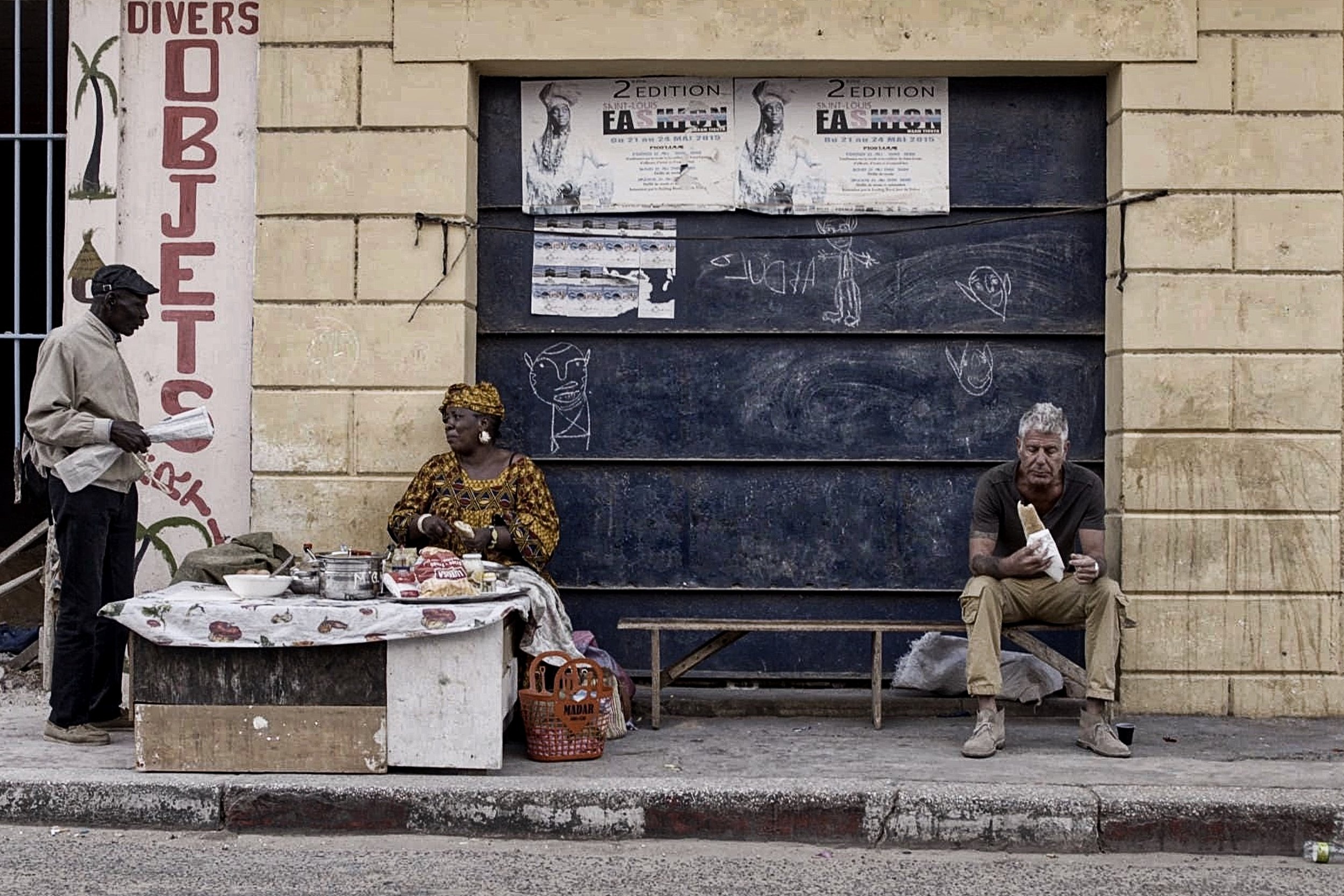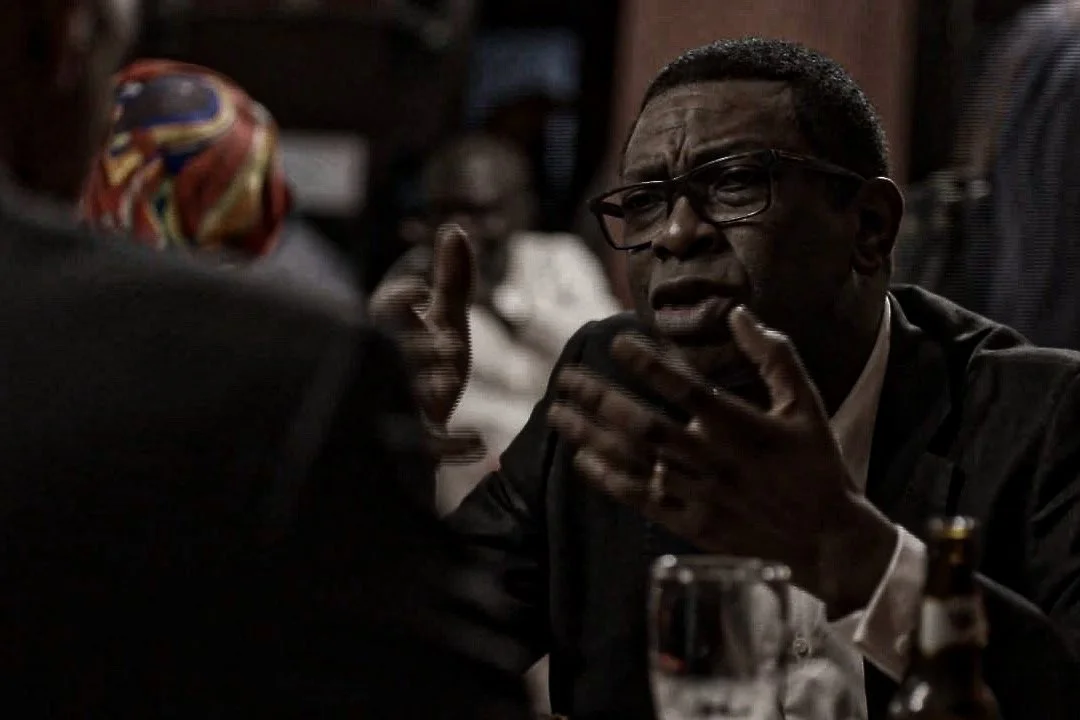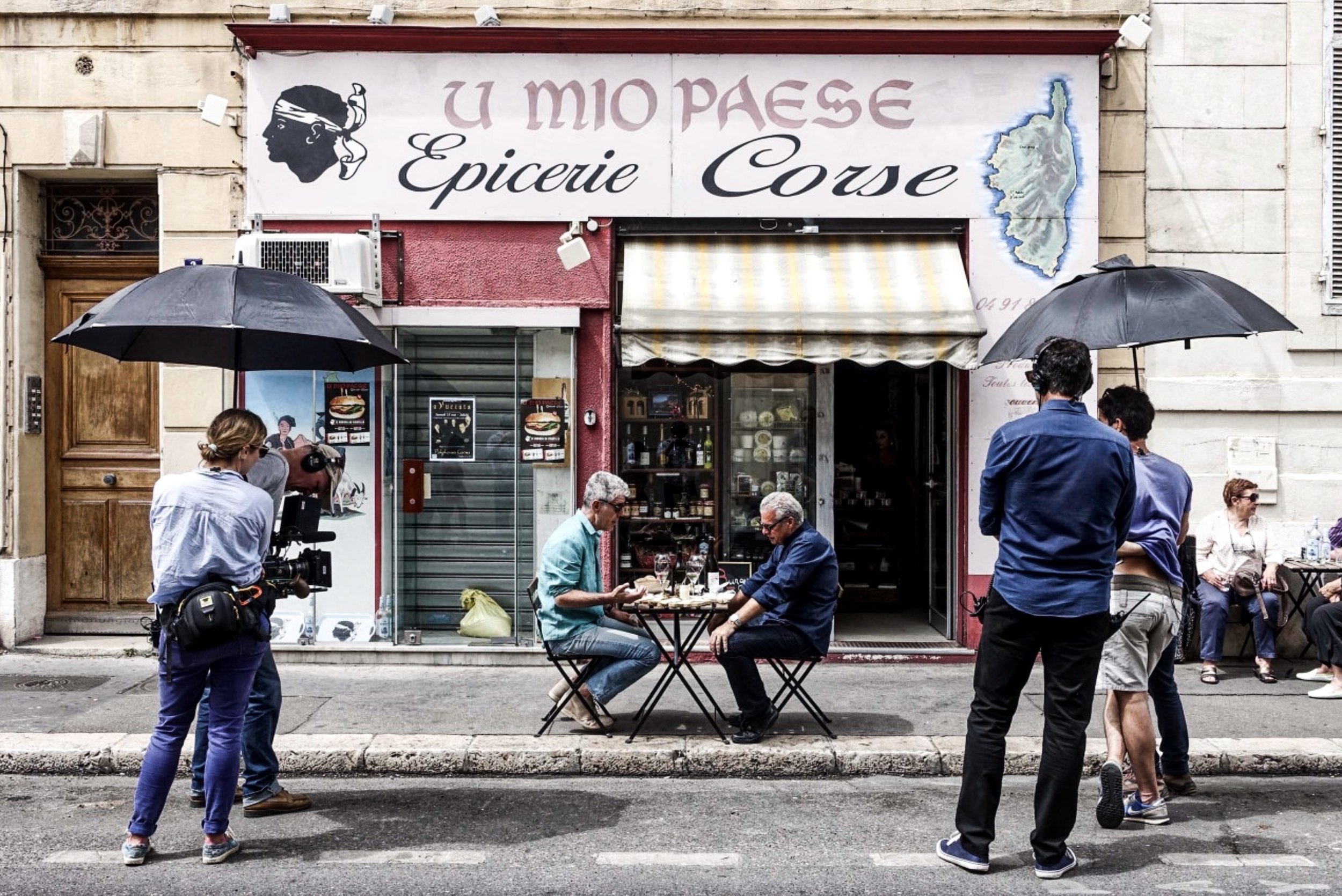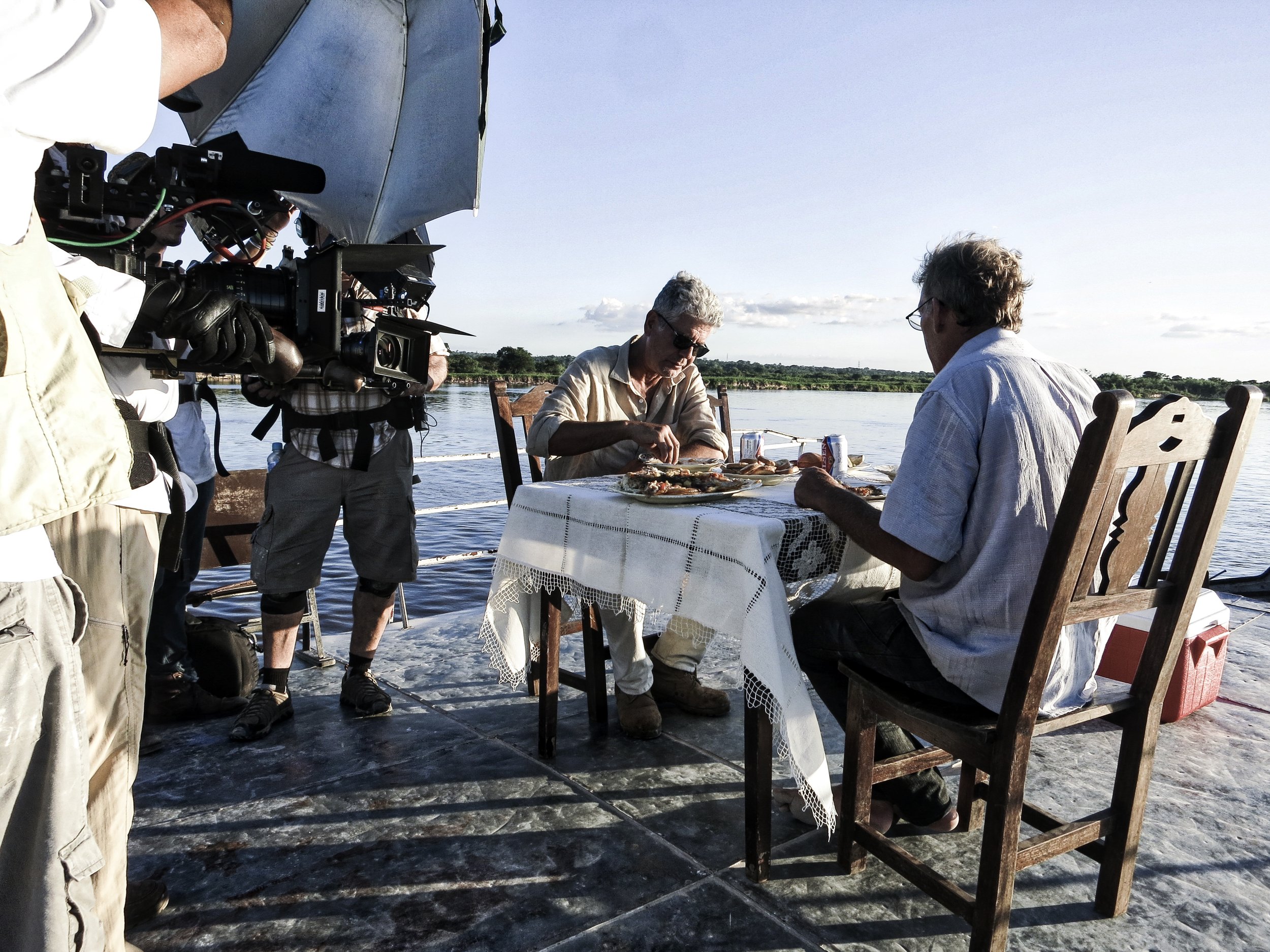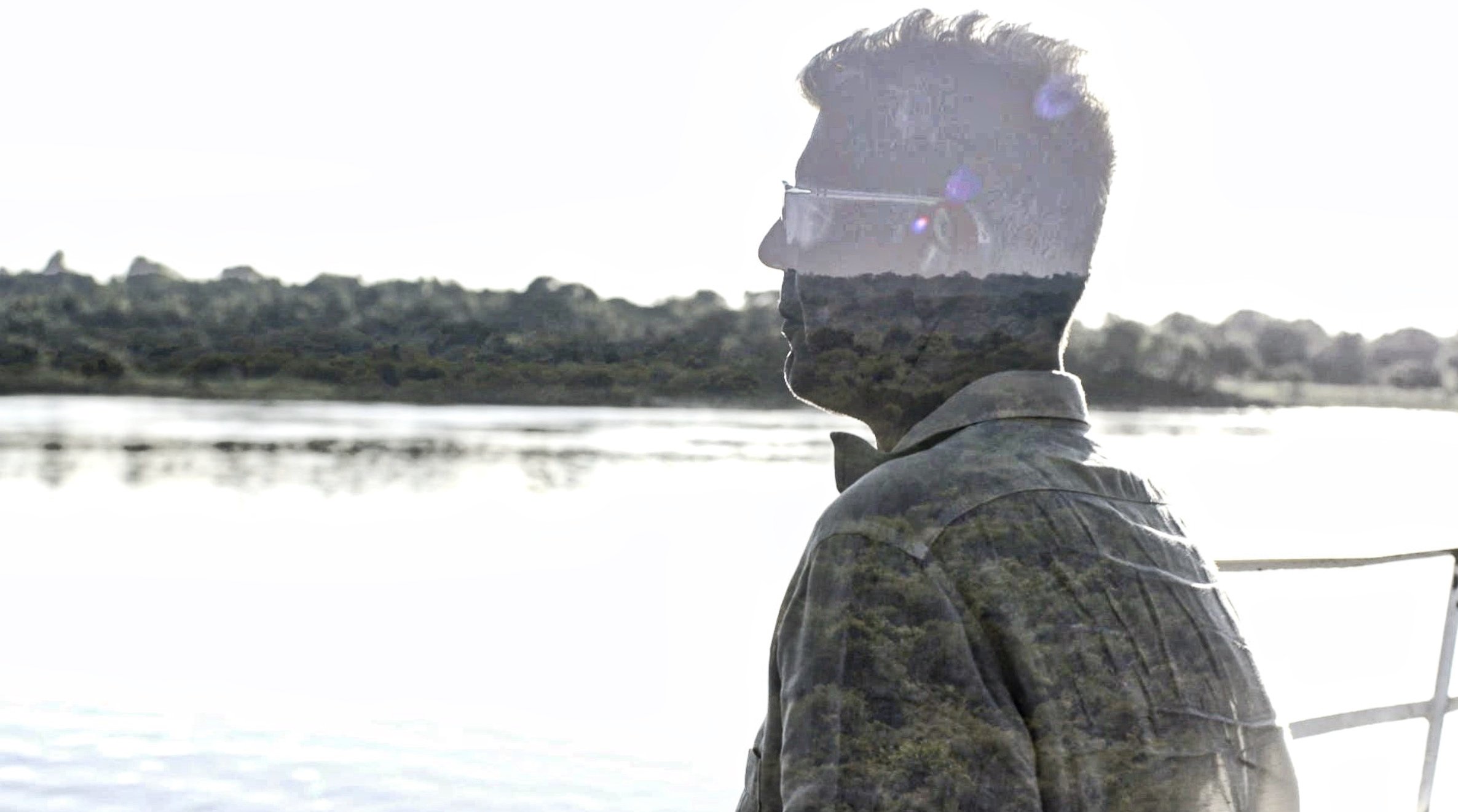“A rebuke to those who’d paint a whole continent as a monolith of despair, or Islam as something to be feared.” This was Tony Bourdain in Senegal, in the fall of 2015.o be feared.” This was Tony Bourdain in Senegal, in the fall of 2015.
Senegal.
In Tony Bourdain’s words, “A rebuke to those who’d paint a whole continent as a monolith of despair, or Islam as something to be feared, Senegal turns simple-minded assumptions and prejudice on their heads at every turn.”
More than a few people who followed Bourdain on his travels over the years — including some of those in this group, quite possibly — may have been surprised by how taken Bourdain was with the West African country of Senegal, which he visited just once in his many years on the road, in the fall of 2015.
The essay he penned for the social media platform Medium, the day before Senegal premiered on CNN’s Parts Unknown in May 2016, left little doubt, however.
Bourdain had set foot in Africa before, a vast continent with more than 50 countries, in Congo for Parts Unknown’s debut season, followed in short order by Morocco, South Africa, and Tanzania in 2014, Madagascar in 2015, and Ethiopia a year later.
He would go on to visit Nigeria and—famously, in his final season of Parts Unknown, which aired posthumously in 2018—Kenya with Kamau Bell.
Years earlier, for Travel Channel’s No Reservations, Bourdain wound his way through Ghana, Namibia, and Liberia, ending with Mozambique in No Reservations’ last season, titled — somewhat portentously — The Final Tour.
Senegal, though, was different, as he made clear in his essay for Medium.
“So let this episode in Senegal, an African nation which is over 90% Muslim, serve as both rebuke and example. It is a country that proudly elected as their first president after independence a Christian — because they felt, in their best judgment, that regardless of his faith, he was the best person for the job.
“It is a country that defies stereotypes and expectations at every turn. Emerging from French colonial times as a functioning multi-cultural, multi-lingual, extraordinarily tolerant society, it has managed to avoid coups, tribal wars, dictatorships and most of the ills that afflicted so many of its neighbours. It remains an absolutely enchanting place to visit, with delicious food, absolutely extraordinarily beautiful music, and a relatively free and easy attitude towards intermarriage, mixed race, intertribal relationships and foreign visitors. It has a powerful and proud tradition of hospitality that endures to this day.”
This was in 2015.
Remarkably, the same is still true today, nearly 10 years later, despite everything that’s happened in the outside world in the years since.
And is still happening, as Bourdain himself would have been quick to point out.
The fascinating thing to me, as a frequent visitor of that vast continent, is that all 54 countries are different. That may seem like a trite thing to say, condescending even, but then you must understand that most — virtually all — Africans see themselves that way, as the residents and citizens of strikingly different countries, with separate cultures and separate languages. I have heard it said that while South Africa — possibly the most westernized of African countries, certainly in the big cities of Durban, Johannesburg and Cape Town, has 11 official languages, in fact, the country of 64 million people is thought by some to be home to 86 different native languages. To homogenize the entire continent in a single word — Africa — is the height of condescension, but that’s what colonial thinking does to one.
Tony Bourdain got that.
That’s why he was openly welcomed wherever he went on the continent — that, and his love for good music in all its forms. And African cultures have indelibly close ties to music in all its forms. The Sahara Desert and the Sahel hinterlands — possibly a vast, seemingly empty wasteland to you and me — are home to some of the most respected, well-attended music festivals on the planet. And here’s the fun part. Those music festivals are about 95% local and only 5%, if that, touristy.
Bourdain got that, too.
And so, in Senegal, he sits down and breaks bread with Senegal’s native-born Youssou N’Dour, not just sharing quality time with N’Dour but thanks to CNN’s Parts Unknown and Zero Point Zero Production’s cameras allowing us, the viewers, to share quality time not just with a remarkable singer and musician but a poet-philosopher, a political activist, an active humanist, who is Christian, secular and Muslim all rolled into one.
A truly remarkable person. Peter Gabriel is a frequent musical collaborator of N’Dour’s, and he’s not alone among Western musicians of note. Gabriel will tell you he’s the pupil and N’Dour the mentor, not the other way around.
It’s worth noting, too, that N’Dour performed his anthemic 7 Seconds, featured in all its gorgeous fullness in the Senegal episode, in 2005’s Live 8 concert in an extended duet with Dido, who was born in Kensington, London and hails from a background as different from N’Dour’s as is humanly possible.
Think on this: Live 8 — sobering and deeply moving to look back at today, given the fractious state of world affairs today— was performed live, and I’m not making this up, from London, Paris, Rome, Philadelphia, Barrie (Ontario, Canada, my home country), Chiba (Japan), Johannesburg, Moscow, Cornwall and Edinburgh. Think about that: good music brings the world together for a common cause.
Tony Bourdain got that, too.
“So what’s the future?” he asks N’Dour, about midway through what, with the benefit of 10 years’ hindsight, is one of my favourite Bourdain sets.
The two met in Dakar’s Bazoof restaurant over plates of mafe, a Senegalese stew of beef thickened with ground peanuts. To hear Bourdain tell it, “There are similar preparations throughout West Africa, but the Senegalese version is particularly great. Sear the beef; cook the onion, garlic, peppers, and carrots; deglaze with ground peanuts and broth, bringing up all that good stuff from the pan; then simmer until tender and awesome. Serve hot over rice.”
“The future?” N’Dour replies, perhaps surprised by the question.
Bourdain: “Yes, the future. Twenty years from now, where will Senegal be?”
N’Dour: “What I hope is, in 20 years, Senegal is going to be the place for great and big contributions of what we call Islam.”
Bourdain: “Do you think there's any danger of the kind of radical Islam that we see taking hold in many places in Africa?”
N’Dour: “All these people who are using the religion, the Muslim religion, to do bad things — I think Senegal sets (a good) example. This country I love, my country has many different models of the religion. This country, you know — you are here. I'm doing my local bissap “ — a drink made from a hibiscus flower known as the Roselle; the sepals of the hibiscus, when infused in hot water, leave a pink, red, magenta or dark shade of water — “and you are here, with your beer, in a country that is 95 percent Muslim.”
Bourdain: “Right.”
N’Dour: “And I think this example can help all the world.”
Bourdain: “I hope so. Inshallah.”
By the end, Bourdain is profoundly moved by this country of 18 million. Shaken to his core. What better way to close this, then, than with his own words,.
“Senegal is one of the best arguments for travel I can think of. Because the more we see of the world, actually meet who we are talking about — or think we are talking about — the more we take a walk, however briefly, in other people’s shoes, see how other people live, people who are supposedly so different than us, and find ourselves — as so often and so inevitably happens — recipients of random acts of hospitality and kindness from total strangers, then the better we shall be.
“And the happier. Knowledge — exposure — to ‘the other’ is not a contaminant.
“It enriches us. It makes — or should make us — more humble.
“Senegal. It’s someplace that everyone, given the chance, should go.”
Inshallah.
Supplementary reading:
https://explorepartsunknown.com/senegal/senegal-women-equality/
https://explorepartsunknown.com/senegal/senegal-episode-facts/

